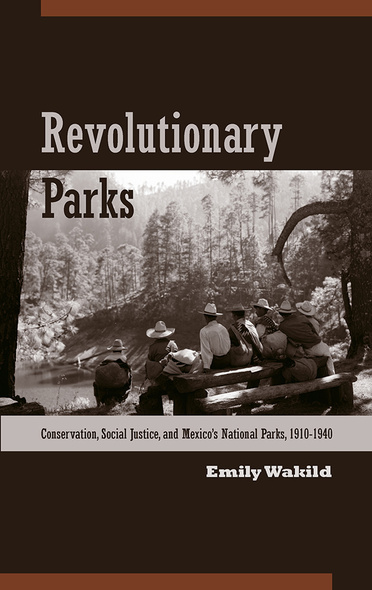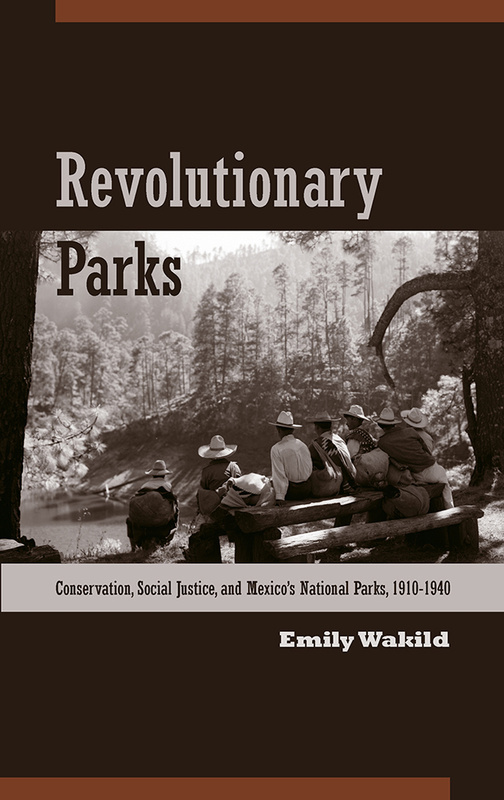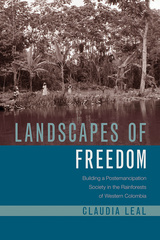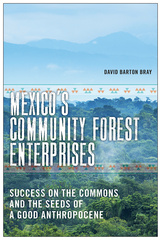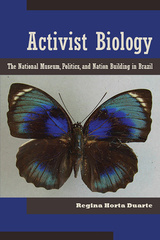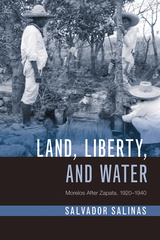Revolutionary Parks
Conservation, Social Justice, and Mexico’s National Parks, 1910–1940
By Emily Wakild
SERIES:
The University of Arizona Press
Winner of the Alfred B. Thomas Award (Southeastern Council of Latin American Studies)
Revolutionary Parks tells the surprising story of how forty national parks were created in Mexico during the latter stages of the first social revolution of the twentieth century. By 1940 Mexico had more national parks than any other country. Together they protected more than two million acres of land in fourteen states. Even more remarkable, Lázaro Cárdenas, president of Mexico in the 1930s, began to promote concepts akin to sustainable development and ecotourism.
Conventional wisdom indicates that tropical and post-colonial countries, especially in the early twentieth century, have seldom had the ability or the ambition to protect nature on a national scale. It is also unusual for any country to make conservation a political priority in the middle of major reforms after a revolution. What emerges in Emily Wakild’s deft inquiry is the story of a nature protection program that takes into account the history, society, and culture of the times. Wakild employs case studies of four parks to show how the revolutionary momentum coalesced to create early environmentalism in Mexico.
According to Wakild, Mexico’s national parks were the outgrowth of revolutionary affinities for both rational science and social justice. Yet, rather than reserves set aside solely for ecology or politics, rural people continued to inhabit these landscapes and use them for a range of activities, from growing crops to producing charcoal. Sympathy for rural people tempered the radicalism of scientific conservationists. This fine balance between recognizing the morally valuable, if not always economically profitable, work of rural people and designing a revolutionary state that respected ecological limits proved to be a radical episode of government foresight.
Revolutionary Parks tells the surprising story of how forty national parks were created in Mexico during the latter stages of the first social revolution of the twentieth century. By 1940 Mexico had more national parks than any other country. Together they protected more than two million acres of land in fourteen states. Even more remarkable, Lázaro Cárdenas, president of Mexico in the 1930s, began to promote concepts akin to sustainable development and ecotourism.
Conventional wisdom indicates that tropical and post-colonial countries, especially in the early twentieth century, have seldom had the ability or the ambition to protect nature on a national scale. It is also unusual for any country to make conservation a political priority in the middle of major reforms after a revolution. What emerges in Emily Wakild’s deft inquiry is the story of a nature protection program that takes into account the history, society, and culture of the times. Wakild employs case studies of four parks to show how the revolutionary momentum coalesced to create early environmentalism in Mexico.
According to Wakild, Mexico’s national parks were the outgrowth of revolutionary affinities for both rational science and social justice. Yet, rather than reserves set aside solely for ecology or politics, rural people continued to inhabit these landscapes and use them for a range of activities, from growing crops to producing charcoal. Sympathy for rural people tempered the radicalism of scientific conservationists. This fine balance between recognizing the morally valuable, if not always economically profitable, work of rural people and designing a revolutionary state that respected ecological limits proved to be a radical episode of government foresight.
Wakild’s thought-provoking work does well in capturing the achievements and limits of ‘revolutionary’ national parks and provides compelling reading for anyone interested in simultaneously protecting nature and people.’—European Review of Latin American and Caribbean Studies
‘This book shines a light on another aspect of the Mexican Revolution—that of state-embraced conservation in tandem with land reform. It shows how environmental, social and cultural history can be integrated into a study of conservation.’—Lane Simonian, author of Defending the Land of the Jaguar: A History of Conservation in Mexico
‘This is an original, well-researched, and important piece of scholarship. Wakild has managed to address a wide range of themes within a narrow—and thus nicely detailed and rich—scope.’—Raymond Craib, author of Cartographic Mexico: A History of State Fixations and Fugitive Landscapes
Emily Wakild is an assistant professor of history at Wake Forest University.
Acknowledgments
Introduction: Creating a Common Cultural Patrimony of Nature
1 Science: Elite Societies, Revolutionary Conservation, and National Park Development
2 Education: Restoring Nature and Rebuilding Society in Lagunas de Zempoala National Park
3 Productivity: Forest Industries and National Landscapes in Mexico’s Popocatépetl-Iztaccíhuatl National Park
4 Property: Ecological Plagues and Legal Frameworks in La Malinche National Park
5 Tradition: Community Environmentalism and Naturalized Patrimony in El Tepozteco National Park
Conclusion: Just Parks? A Silent Failure with Enduring Lessons
Appendix A. National Park Declarations and Contents, 1935–1941
Appendix B. Lagunas de Zempoala Sample Entries in Visitor Log, August 1938
Appendix C. Classifications of Number of Entries for Occupations with More than One Visitor for Lagunas de Zempoala, 1938
Notes
Bibliography
Illustration Credits
Index

